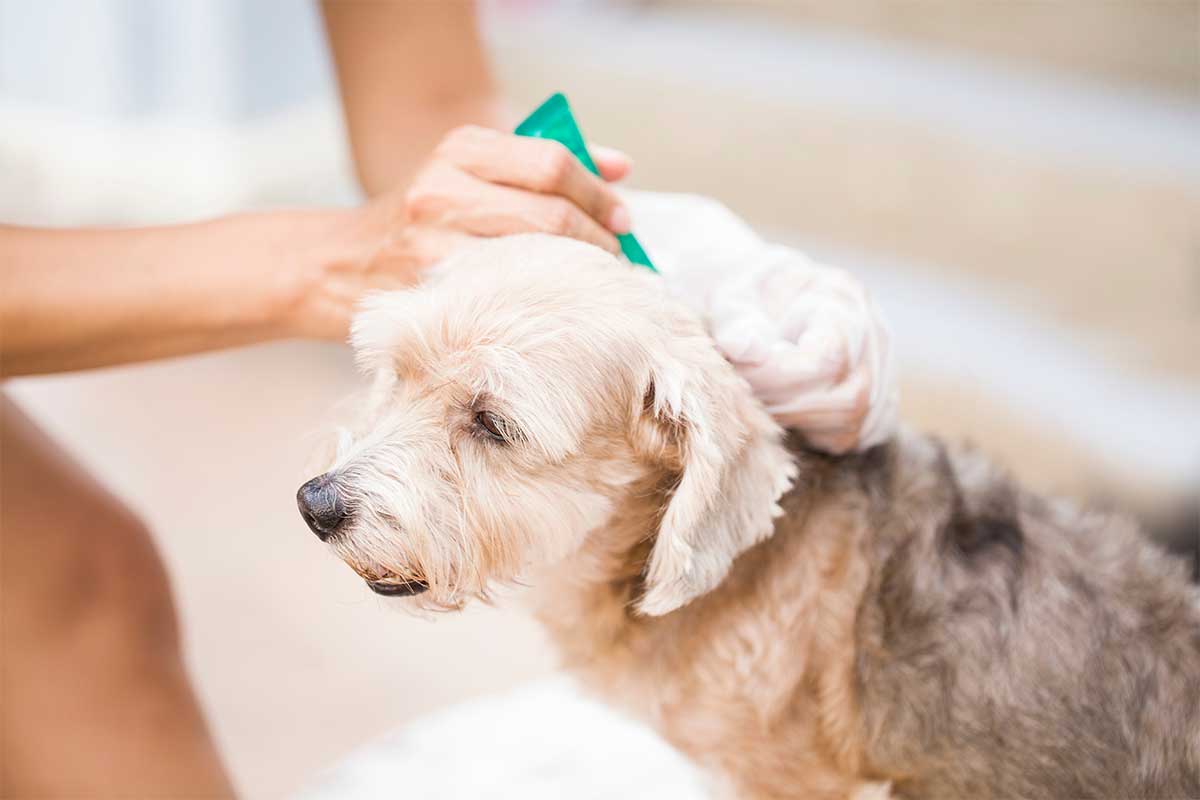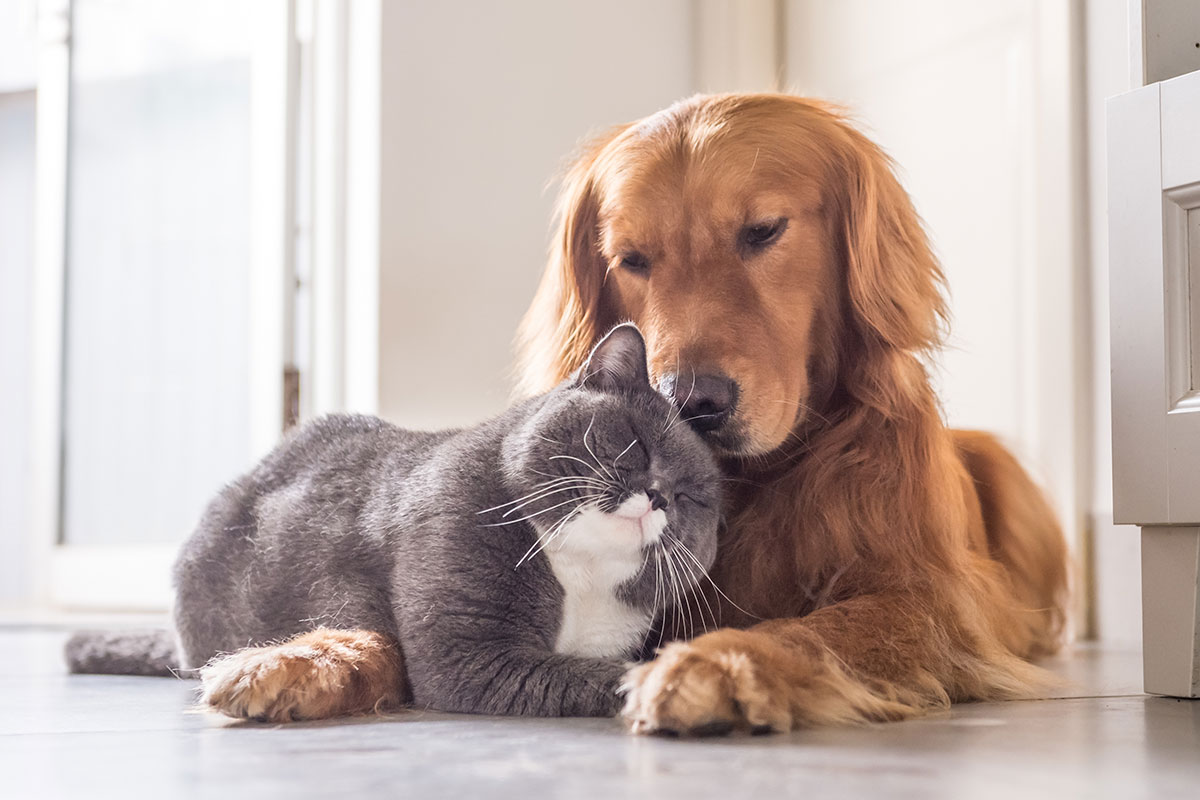
It’s summertime and the livin’ is … hot. Whether you love the heat or prefer the cold, it’s important to keep your pets in mind this season. We asked three of the best veterinarians in Northern Virginia what you need to know to keep your pets safe this summer, as well as your most common questions about dogs’ and cats’ habits.
Meet our Panel

Michelle Samuel, VMD, DACVO
Veterinary Referral Center of Northern Virginia
Michelle Samuel, who specializes in veterinary ophthalmology, wanted to be a vet since she was 2 years old. “I have always appreciated the human-animal bond,” she says. “I love working with animals, as well as their loving owners.”

Lisa Pinn McFaddin, DVM, GDCVHM, CVSMT, CCOAC, CVA, CVFT
Independent Hill Veterinary Clinic
“I enjoy the puzzle of medicine and helping those who cannot tell me what is wrong,” says Lisa Pinn McFaddin of her career as a vet practitioner. She also specializes in integrative medicine, acupuncture, Chinese herbs and veterinary spinal manipulation (aka animal chiropractic).
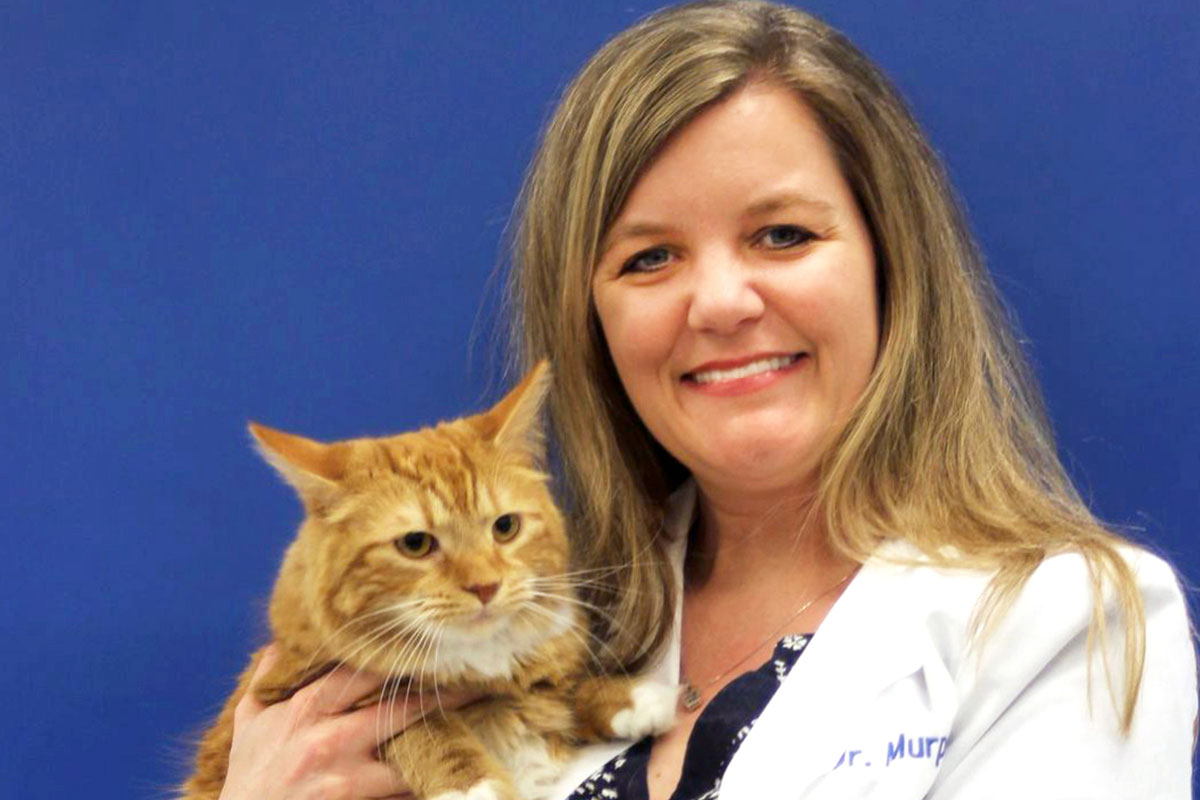
Karen Murphy, DVM
Caring Hands Animal Hospital
Karen Murphy works at Caring Hands Animal Hospital, an AAHA-accredited animal hospital, which provides ultrasounds, digital dental radiography, laser surgery and therapeutic laser capabilities. “Educating people on ways they can keep their pet healthy as a loved member of the family is very rewarding,” she says. “Of course, getting to see all the wonderful pets is an added bonus.”
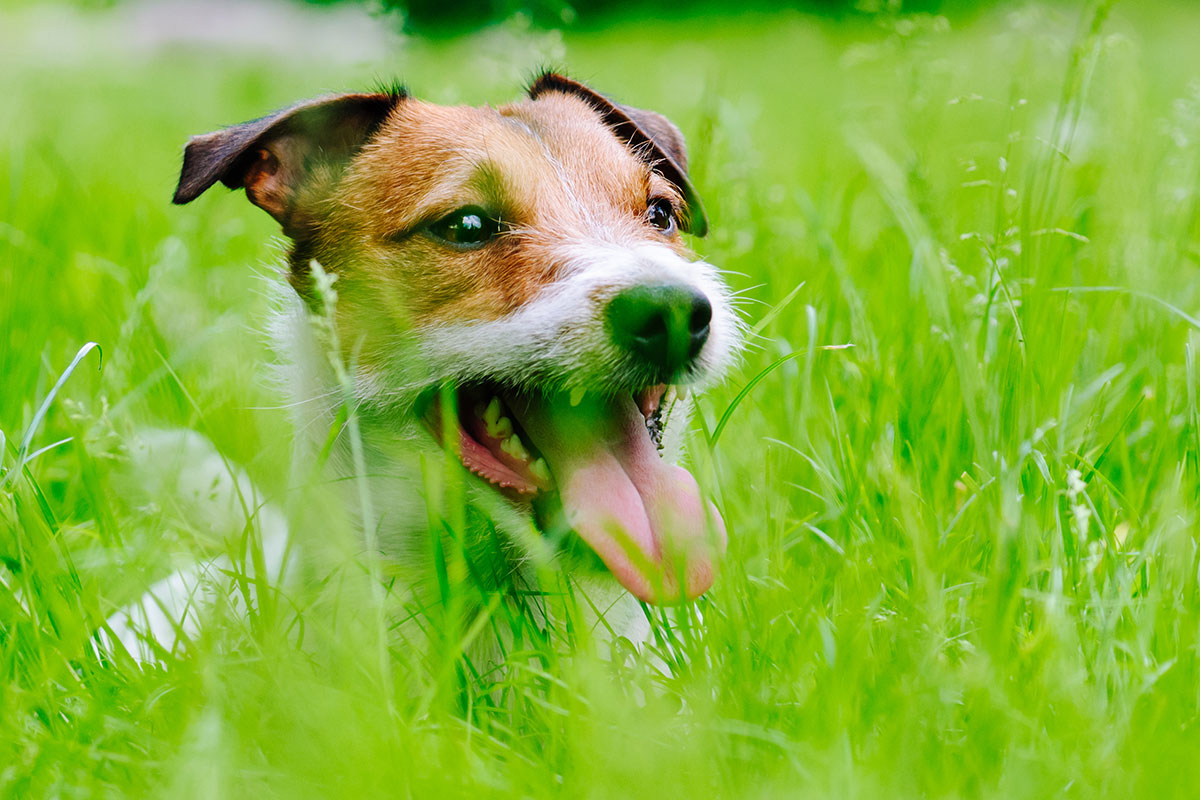
The Dog Days of Summer
Summer is a fun time for dog owners: Swims, hikes, walks, even just hanging out at a barbecue, are all better with your pet in tow. But, many issues can arise during the hot season. Below, local vets Michelle Samuel, Lisa Pinn McFaddin and Karen Murphy give us their best tips for keeping your dog safe this summer.
What is the best way to prevent tick bites?
MS: The best way to prevent tick bites is to use a high-quality, safe, tick preventative. A variety of these are now available in topical, collar and oral formulations. Not all over-the-counter flea and tick preventatives are created equal, however, as some of these contain older, more toxic ingredients, some of which are not safe for use on pets. When considering which product is best for your pet, it is best to discuss this with your veterinarian.
LM: Regular flea and tick prevention. Ensure it’s applied correctly (i.e. oral vs. topical vs. collar). Ensure all preventative used is veterinarian-recommended and appropriate for your pet, as well as protects against all ticks common to this area, and do daily tick checks from the nose to the tail.
KM: The best way to help you and your pet avoid ticks is to walk on pathways or trails. It is best to have a buffer of shorter grass around the path and stay away from the taller, grassy areas. This keeps the ticks from the area you and your dog are walking. And, using an effective flea and tick preventative is very important.
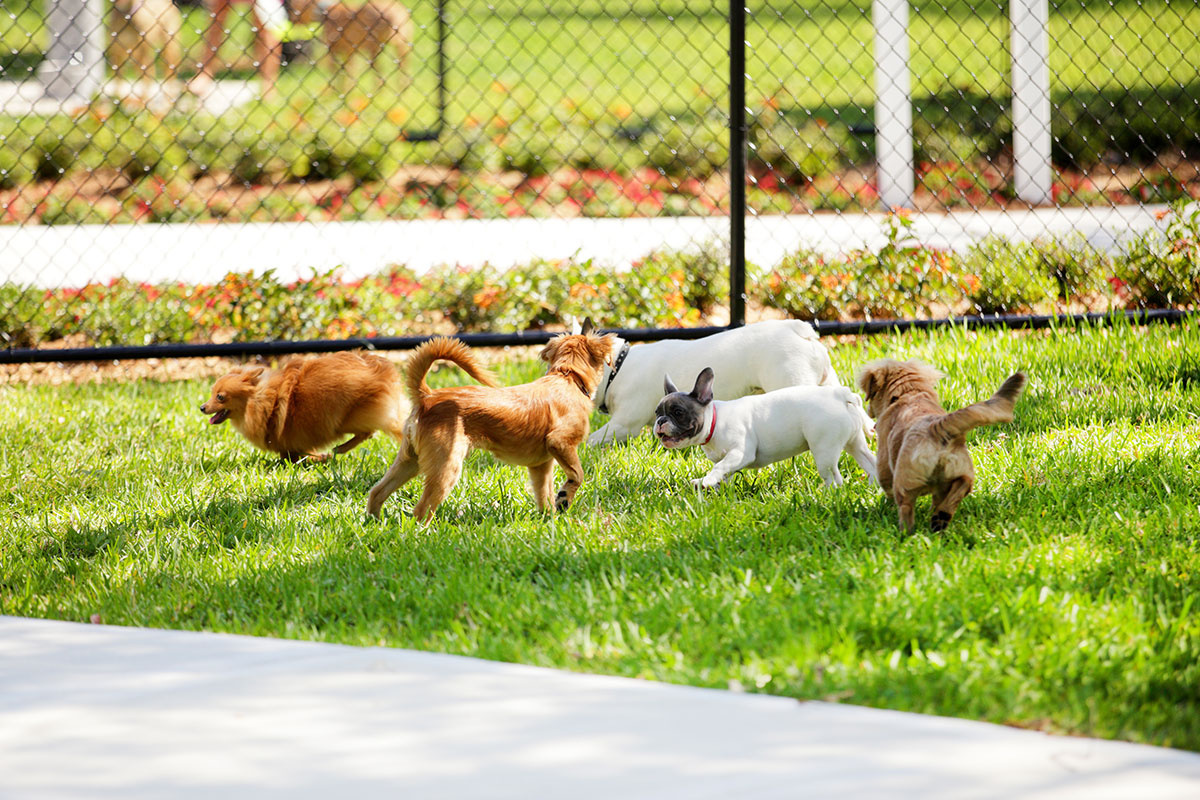
My dog seems to get social anxiety when we go out to the dog park. How can I alleviate this?
MS: Unfortunately, some dogs just aren’t social butterflies. They prefer to hang out with one or two special friends, but don’t enjoy the overwhelming crowd of a dog park. If this is your dog’s preference, it would be best to understand and accept your dog’s wishes and do other things with him that he does enjoy. Maybe try a long hike in a rural area, or a training class like agility or nose work. Or, you can find those special friends that he enjoys and have a dog park in your own backyard with just them!
LM: Just like some people are extroverts, like myself, and thrive on social interactions, some pets are introverts and prefer to spend time alone, or with close friends. If your dog appears stressed when going to the dog park, it may not be the right environment for him/her. It may be too stimulating. You can try smaller groups of dogs or training classes and see if this works better for your dog.
KM: Working with a trainer on anxiety issues can be very beneficial. However, there are some things you can do at home to get started. Ask a neighbor to come over and give treats to your dog to help them meet someone new. Then, ask your neighbor to bring their dog with them the next time they come over. Have the dogs play with each other and reward the dogs for good behavior. Take your dog for walks and when people approach, have them give the dog a treat. This will allow the dog to have positive interactions with strangers and learn to be more social. Going straight to a dog park can be overwhelming, so start small and work your way to larger groups.
Don’t Wait. Vaccinate.
Confused on when your dog or cat needs vaccinations throughout their first year? See our handy chart below, and ask your vet for more details and recommendations, as not every pet will need all vaccinations.
Puppies
6-8 weeks: distemper, measles, parainfluenza, Bordetella
10-12 weeks: DHPP, coronavirus, leptospirosis, Bordetella, Lyme disease
12-14 weeks: Rabies
14-16 weeks: DHPP, coronavirus, Lyme disease, leptospirosis
12-16 months: Rabies, DHPP, leptospirosis, Bordetella, Lyme disease, coronavirus,
Every 1-2 years: DHPP, coronavirus, leptospirosis, Bordetella, Lyme disease
Every 1-3 years: Rabies
Kittens
4 weeks: Bordetella
6-8 weeks: Rabies, feline distemper, feline herpesvirus, calicivirus, feline leukemia
1 year, then every 3 years after: Feline distemper, feline herpesvirus, calicivirus
Every year: Bordetella
Every 1-3 years: Rabies
Every 2 years: Feline leukemia
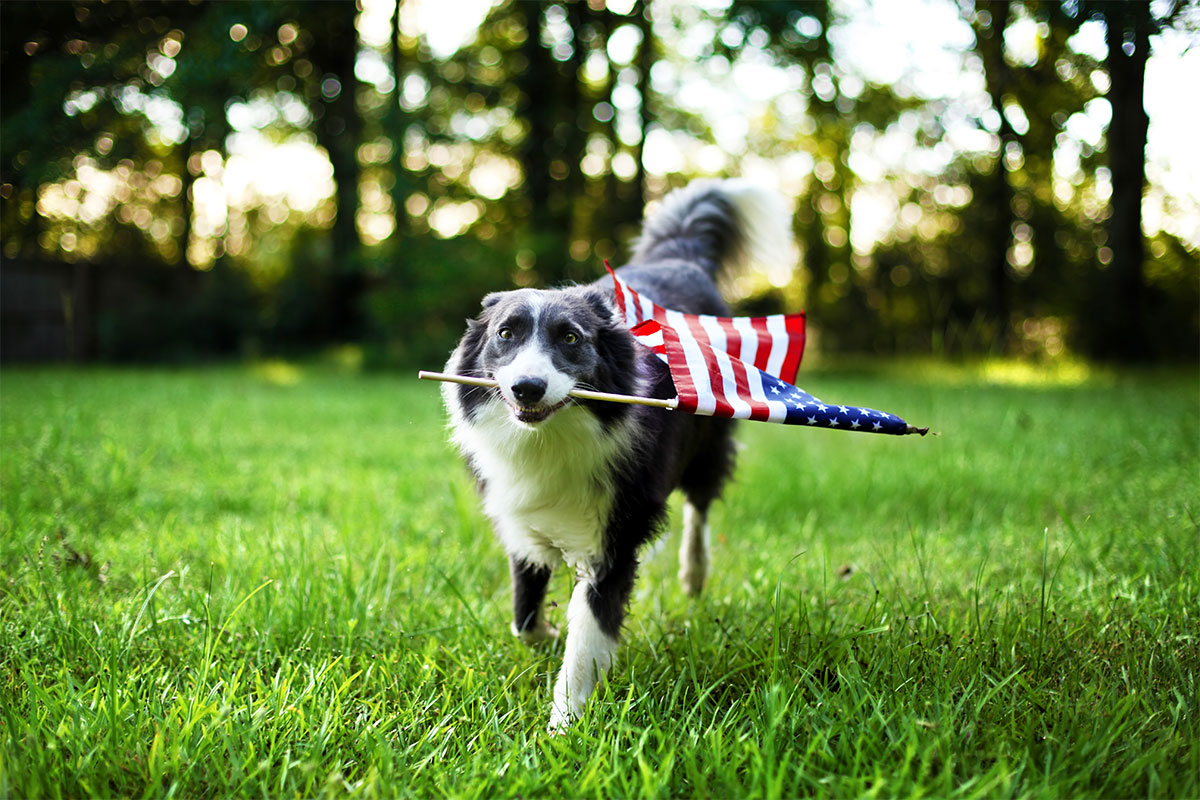
My dog gets anxious on the Fourth of July because of the fireworks. How can I make him feel safe?
MS: Planning ahead is key! Have a safe spot that your dog can go to (some prefer the bathroom or a closet). Set him up with a comfy dog bed, some white noise to drown out the booms of the fireworks and a favorite chew bone or toy. Spray some dog-appeasing pheromones in the room and ask your veterinarian about FDA-approved medication for dogs with noise phobias. Medication can be given prior to dusk when the shows generally start, and then repeated every two hours as needed. It’s fast-acting and very safe!
LM: A fear response can be normal and is a necessary evolutionary trait. The immediate fight-or-flight response that occurs when a prey animal hears a loud noise can save its life. Dogs with phobias should never be forced to “face their fears” or punished. This tactic causes increased stress, fear and anxiety. Treatment of any phobia should be multifaceted addressing the owner’s response to their dog, the environment, natural calming aids and prescription drugs, if needed.
KM: There are lots of ways we can help our furry friends stay safe and calm during Fourth of July fireworks or thunderstorms. Noise phobias are quite common in dogs and can be very troubling to see your pet experience. Allowing them to be with you and in their favorite place at home is often enough to calm them during these times. You can also give them their favorite treat or toy to help distract them.
How can I protect my dog from overheating?
MS: First, it is important to note that some dogs should not spend any length of time outdoors, particularly during the daytime sun hours on hot summer days. These include short-nosed breeds, such as bulldogs and pugs, which are incapable of properly keeping themselves cool through panting, as well as older dogs who may have been diagnosed with a condition, such as laryngeal paralysis, and who are similarly incapable of panting properly to keep themselves cool. For all dogs, basic common sense should be used—if it seems too hot or humid to you, then it probably is for your dog.
LM: Limit walks to early morning or after dusk; avoid strenuous activity, especially when the temperature is over 80 degrees and when it is very humid; make sure your dog has a source of water if outside in the middle of the day; and provide him with a way to lay in the shade.
KM: Allowing your pets to stay inside or have access to shaded areas during the hottest portion of the day is ideal. It is best to allow them to go outside or for walks in the early morning or late evening when temperatures are lower.
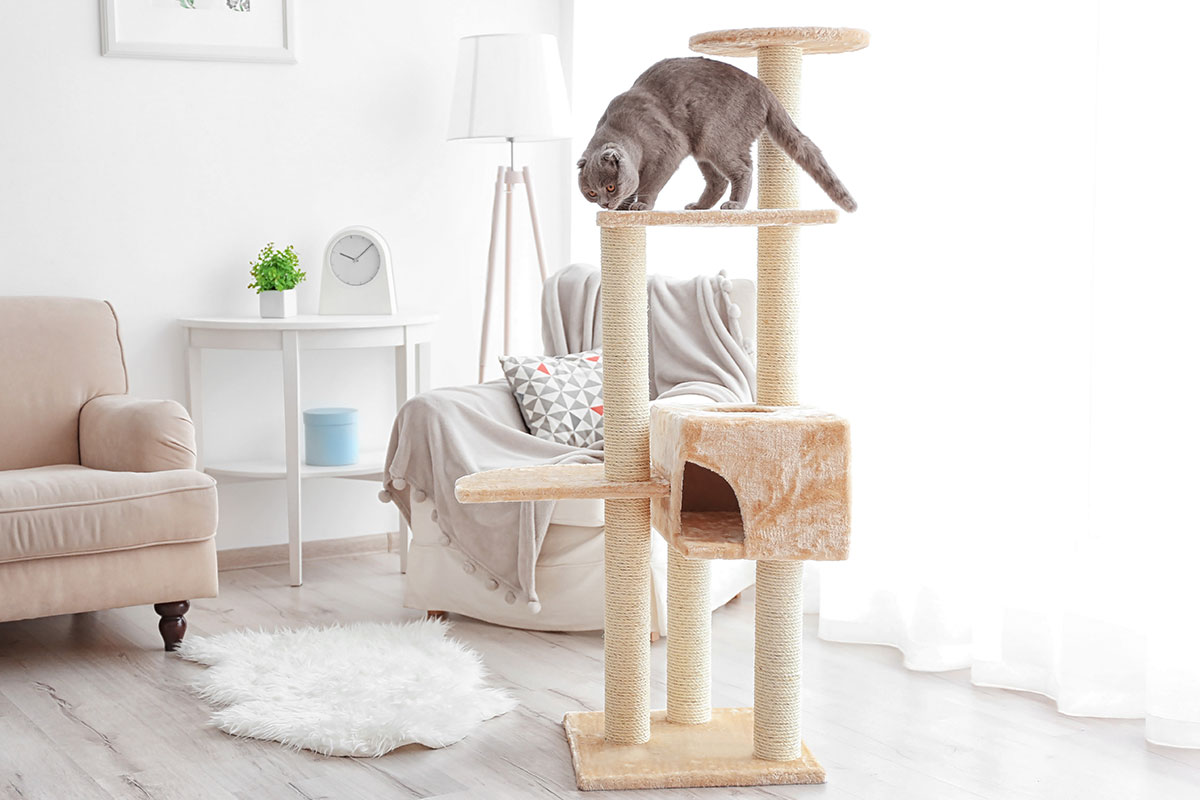
The Cat’s Meow
Cats, arguably, are less affected by the summer than dogs; most stay indoors in the air conditioning, after all. But, it’s still important to consider their care during high temperatures. We asked the vets all your summer-related questions, as well as questions on weird cat behaviors—like why they run around the house at midnight.
My family is going on summer vacation. Is it OK to keep my cat at home alone?
MS: This will definitely depend on the cat. Some cats can regulate their eating, so they only will eat enough at each meal and won’t overeat if there is more available. In addition, cats tend to be fastidious and want a clean litter box, so if it isn’t scooped once or twice daily, you may come home to urine and feces left elsewhere in the home. Ideally, have a pet sitter or a neighbor come over at least once daily to check on the kitty and to fill water bowls, scoop the litter boxes and feed.
LM: I have certainly done this before. If you are going to be gone for a short period of time (48 hours or so) and your cat is healthy, he or she should be fine by themselves. Just don’t be surprised if they get used to having the house to themselves and aren’t super happy to see you when you get home.
KM: The safest option is to board your cat or have a friend stay at the house with them in case of any unexpected emergency. If that is not possible, have someone check on them once or twice a day to ensure they are safe and have food and water.
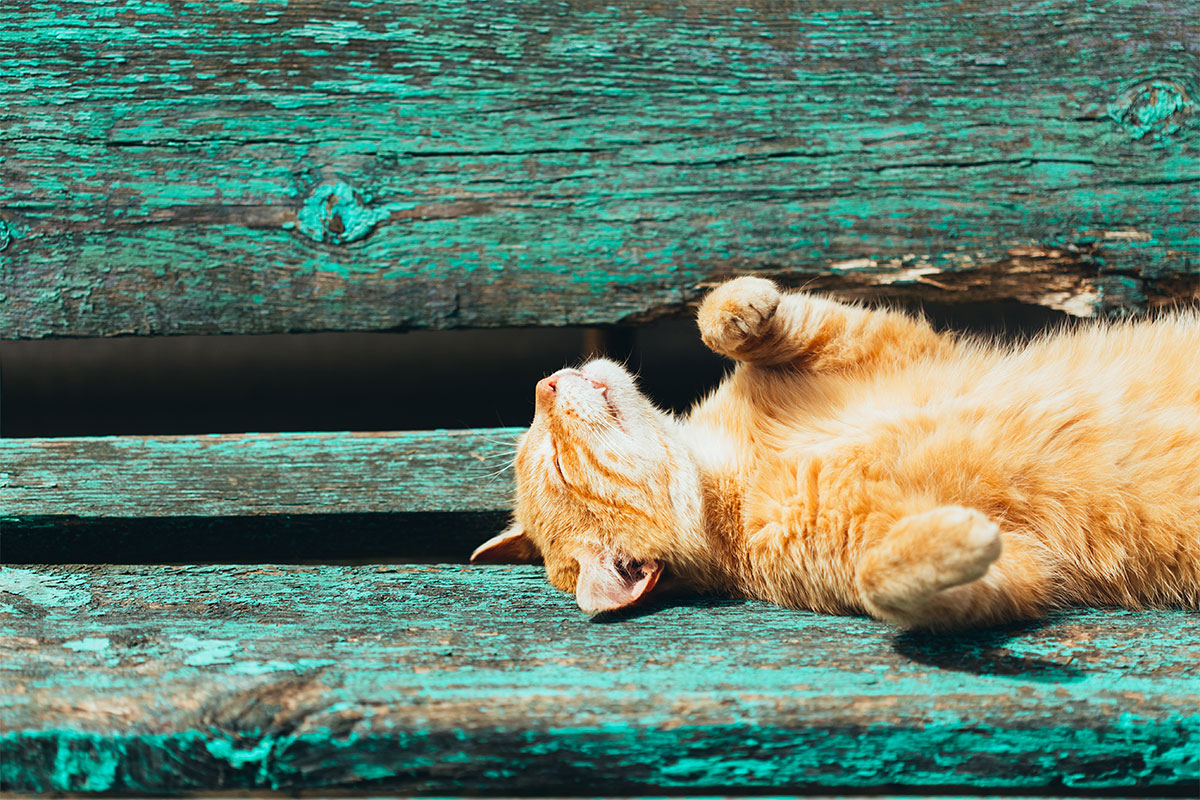
What are the signs of a heatstroke in cats?
MS: Panting or open-mouthed breathing is never normal in cats. Cats that are overheated will often exhibit panting, very pink or red ears and tongue and paw pads and will feel hot to the touch. They may collapse, exhibit tremors or otherwise seem confused.
LM: Heatstroke is uncommon in cats, but can happen. Signs include panting, open-mouth breathing, collapse, glassy eyes, unconsciousness and possibly seizures.
KM: Cats can show signs of heat or stress by open-mouth breathing or panting. This can also be a sign of respiratory distress. Cats prefer to breathe through their noses. If your cat does not stop open-mouth breathing or panting after cooling off or being out of the stressful situation, please seek medical attention from your veterinarian. There may be a more serious underlying reason for the breathing issue.
Welcome Home
So, you got a new pet (woohoo!) and are excited to bring him/her home this summer. But is your house ready for a puppy, kitten or perhaps an older rescue? Stock up on these products to welcome your new pal home.

More Than Mice
Avoid those “11 o’ clock zoomies” (What are zoomies? Turn to pg. 94 to find out.) by providing your cat with all-day entertainment to use up energy. This variety pack features 20 assorted toys, so your pet will never get bored. // Fashion’s Talk Cat Toys Variety Pack for Kitty; $11
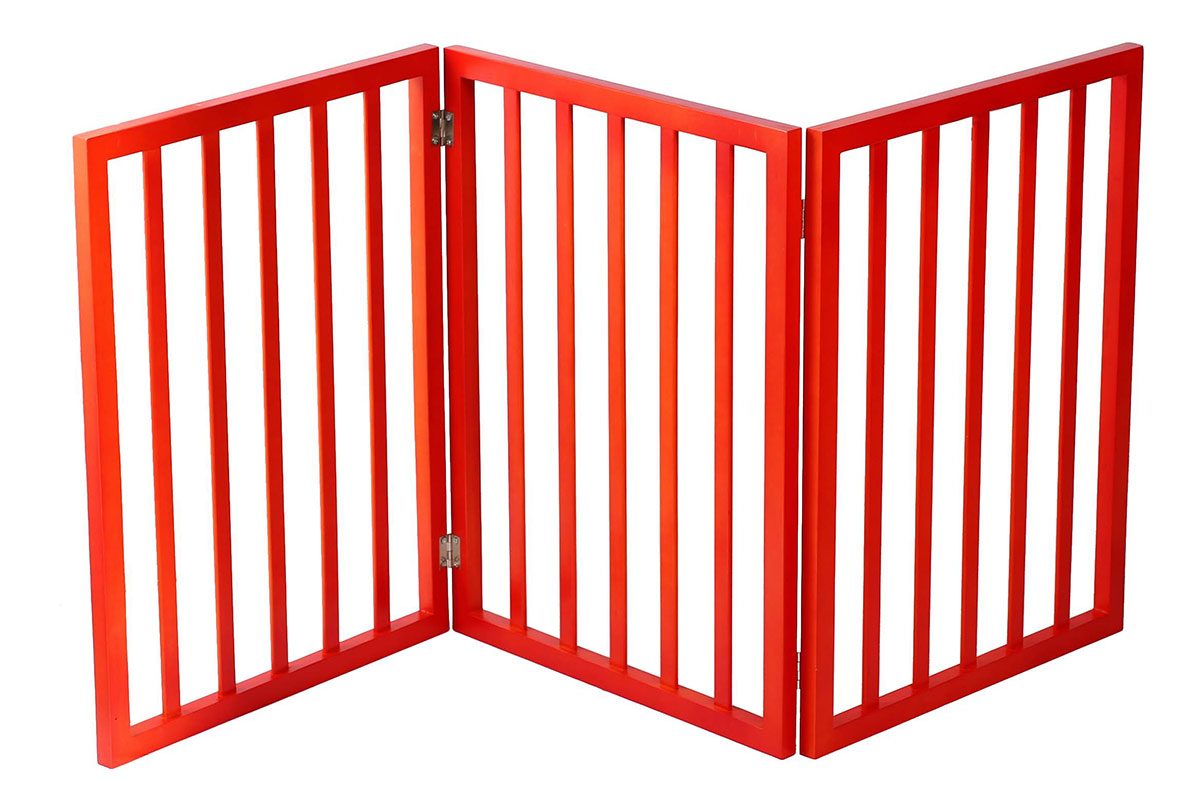
Escape Artist
It’s not a secret that puppies get into everything. Keep your new pet (and your shoes!) safe with a pet gate. This red one adds a pop of color to your home and looks more modern compared to other gates. // Ashmore Folding Free Standing Pet Gate; $30
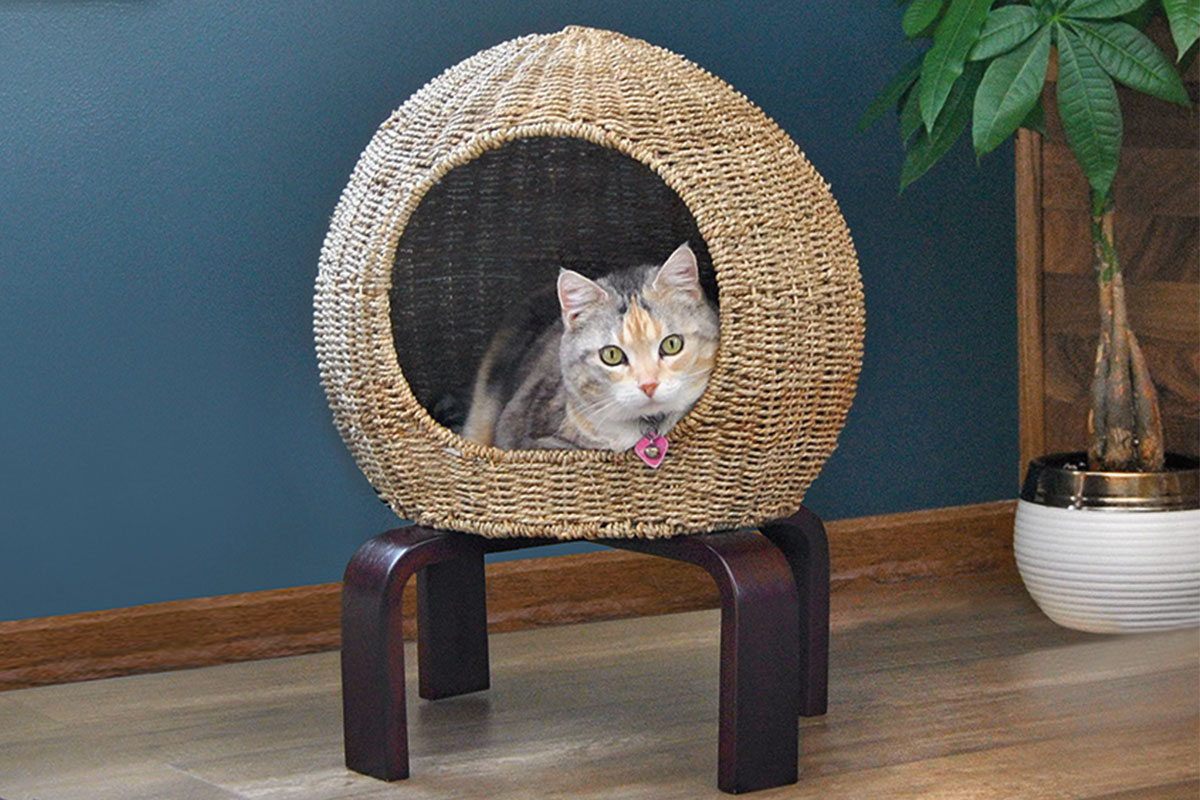
Cat Nap
Your new pet deserves a stylish bed, just like you. This wicker sphere includes a spacious access hole and its small design makes it easy to fit anywhere in your home. // Cat Nap Pod; $140

Furry FaceTime
Do you find yourself constantly thinking about your four-legged friend at work? Check in on her and give her treats with a camera and treat dispenser through the coordinating mobile app. // Petcube Bites Wi-Fi Pet Camera & Treat Dispenser; $250
I have an outdoor cat. What should I keep in mind this summer?
MS: Provide your outdoor cat with a covered/enclosed area in the shade, or allow them access to a garage so that they can get out of direct sun. Commercially available cooling pads are also available for purchase for them to lie on and they should be provided with ample access to cool water so that they can stay hydrated.
LM: Make sure plenty of fresh water is available at all times, give them adequate shade and shelter and keep up-to-date on their flea and tick prevention and their heartworm prevention, as well, as they are more at-risk since they are outdoors.
KM: The biggest concerns for outdoor cats are fleas and ticks. Cats are much better groomers than dogs. It is often hard to tell that they are getting exposed to these parasites until an infestation has happened. Prevention is key by using a safe flea and tick formulation for your cat. Discuss with your veterinarian which product would be best for your cat.
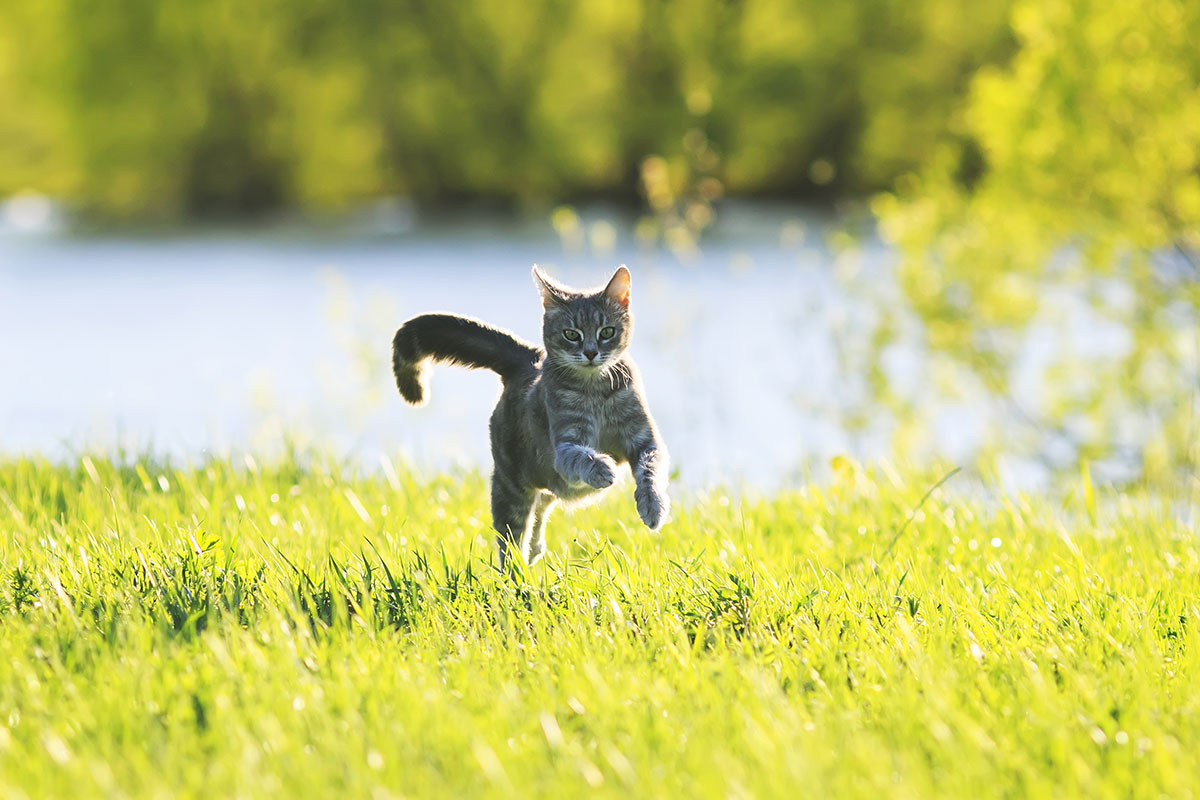
Why does my cat love to run around the house at all hours of the night?
MS: Many house cats are understimulated during the daytime hours when we are at work, and then have some pent up energy overnight. Try having several engaging play sessions in the morning before work, in the evenings before bed and leave feeder toys hidden all throughout the house in the day and the night so your cat can hunt for its food.
LM: I call that the “11 o’clock freak out” or “the zoomies.” Many cats have an active period or periods of time in the evening and late evening. Cats are not nocturnal but more crepuscular (most awake at dawn and dusk). While there is no scientific data to back this up, I personally think cats do what they do when they want to do it, especially if it also inconveniences their people.
KM: Cats, by nature, love to be active at night and sleep during the day. They also love attention! They often seek us out at night and try to wake us up to play. We can help change this habit by engaging them during the day and giving them active playtimes to expend the extra energy. Also, feeding them in the morning and close to bedtime is another way to help them sleep through the night.
To see the list of our 2019 Best Veterinarians List, click here.
This post originally appeared in our July 2019 print issue. Want more pet-related content? Subscribe to our newsletter.



